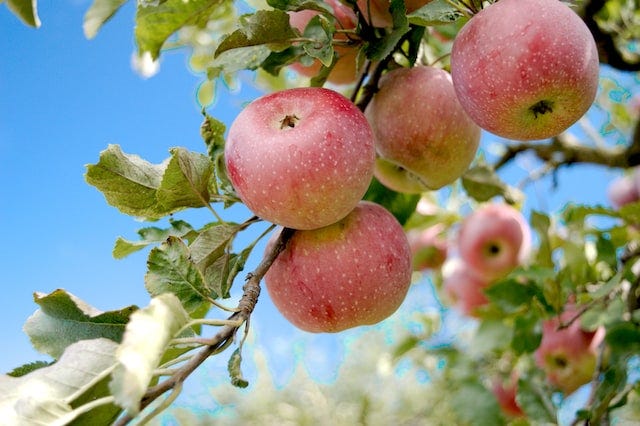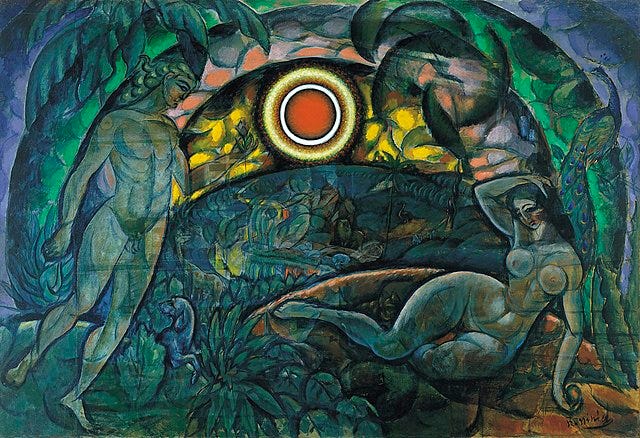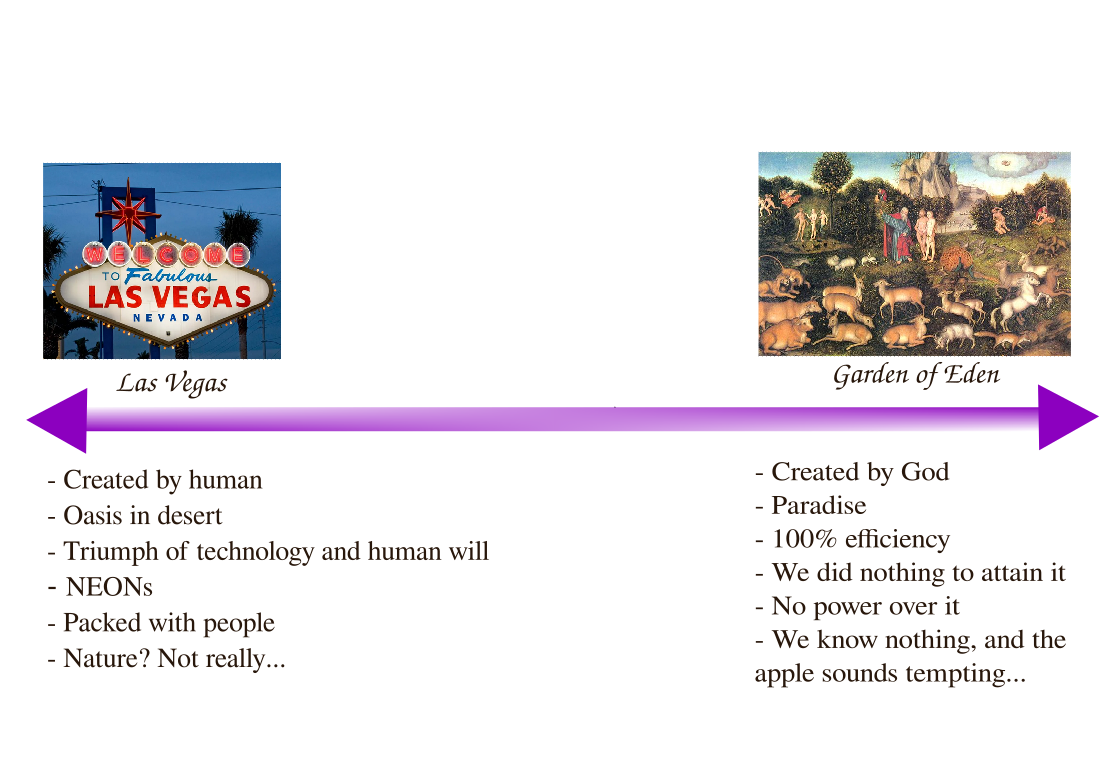This is part 3 of the Foundations series of Earthly Fortunes. Here I share a broader view of how I make sense of the world, as foundations of specific topics and stories that we will dive into later.
See Part 5 for Materialist confessions, Part 4 for the fundamental physical model of our world, Part 2 for negative knowledge, Part 1 for three types of knowledge.
My artist friend Pedro was in his eighties but still hale as a pony, and his favorite horse to beat is Las Vegas. In a world that God never made but created by Man, he insisted, Vegas is the most uncomely creation.
His exact criticism was lost to time, but we both agreed that the Garden of Eden was the last recorded creation by the Maker. After that, He disappeared from history as the highest Creator. Roman roads, steam engines, electric motors, Ukraine’s wheat fields — He was nowhere to be found. Since the eviction of Adam and Eve from the Garden of Eden, we’ve been living in a human-made world. Now more than ever before, we wear polyester jackets (better than fig leaves!), eat with stainless steel cutlery, saunter on concrete sidewalks, and type on acrylonitrile butadiene styrene keyboards. None of these exists in the unperturbed natural environment that God put together in less than a week.
Our world sits on the Vegas-Eden spectrum. Eden is one end: it’s paradise that we never worked to attain. A perfect environment with 100% efficiency and zero-loss in energy conversion, where food and goods production requires no labor nor capital input. But in this paradise we are infants: we have zero power over the environment, and possess no knowledge but are always too tempted by it.
Vegas is the other end. We raised an oasis from an inhospitable desert by blood, sweat, tears, and made it habitable. A triumph of knowledge, technology, and sheer human will. But it is a neon jungle, a gluttony of human bodies packed into transitory centers and bland peripheries, where the last glimpse of nature is transmuted into roadside palm trees.
We all know how the Eden story ended. Paradise was lost forever. But human’s fashioning of the world commenced and continued, as knowledge from the forbidden fruit not only remained, but also increased and multiplied. Over millennia, through minuscule accumulations, we amassed a human-made world of dazzling varieties: icons from the Egyptian pyramids to Hoover dam, daily comforts from bread in the store to WiFi in a box, and Vegas. In this human-made world, we are confronted by inevitable questions: does it work better than Eden? Will it ever? If Eden was God’s last creation, would Vegas be the final form of human creations?

In the Genesis narrative, Eden is a symbol: an ecosystem of vast dimensions and delicate fineness on a planetary scale. We are barely starting to learn about and appreciate it, meanwhile awakening to this command:
God blessed them[Adam and Eve] and said to them, “Be fruitful and increase in number; fill the earth and subdue it. Rule over the fish… and the birds…and over every living creature that moves on the ground.”
(Genesis 1:28, NIV. Emphasis mine.)
Increase. Fill. Subdue. Rule. These strong words capture actions ranging from basic survival to crass vanity; and if followed too literally, are prescriptions for disasters. A happy few realized this, and spread awareness. Consciousness of pollution, climate change, and built environments took root. Calls for changes, fixes, and complete overhauls followed. Among the callers, many seem to long for the lost paradise, and propose some versions of return to Eden, to regain paradise from this human-made world that God never had a hand in.
They mean well, but they forget that Eden didn’t work out for humans in the first place. We lost paradise1, but Vegas is not the only destination for the world we create. And even Vegas shares one trait with Eden: it is highly efficient recycling water and recovering food.

Is better to reign in Vegas than to serve in Eden? This question presents a false dilemma. Because on the Vegas-Eden spectrum, there are infinitely many choices for humans to fashion the world — a world created by us alone, a world that God never made.
On the Vegas-Eden spectrum, it is up to us to decide, if we want the world to lean towards Eden, or incline to Vegas. Many decisions will be made, and many miles will be tread. But you will never walk alone, for I will join you to create this new world that God never made: one story, one idea, one topic, one square meter at a time.
Leaving Eden may be the “Fall of Man”, but if we wake up from the fall-induced slumber, the “Fall” is only the beginning of our ascent to a world that God never made but could still be proud of.
Awake, arise, or be for ever fallen! (John Milton, Paradise Lost)
Thank you for reading Earthly Fortunes. If you like this, please share with your friends. Subscribe for free to join me on trips between Eden and Vegas.




